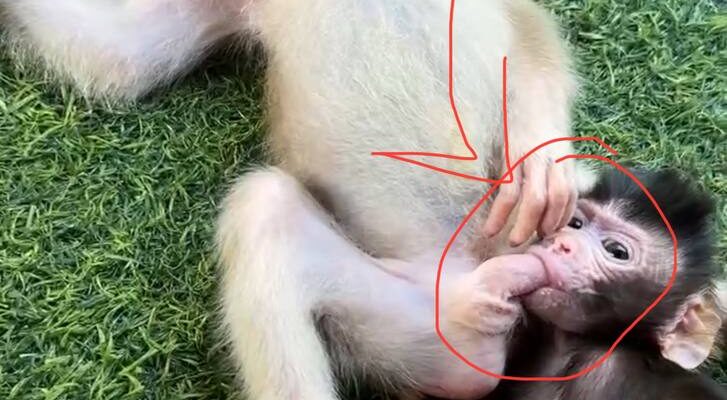Encountering a hungry baby monkey, especially one that appears lost, abandoned, or orphaned, can be a heart-tugging experience. These vulnerable creatures rely heavily on their mothers for nourishment, warmth, and protection. If you come across a baby monkey in need, it’s essential to approach the situation with care, knowledge, and respect for wildlife. Here’s how you can safely help a baby monkey who seems hungry or distressed.
1. Assess the Situation Carefully
First, observe from a distance. Baby monkeys often appear alone while their mothers forage nearby. If the infant seems healthy and alert, there’s a chance its mother is returning soon. Avoid rushing in to grab it — interference can lead to unintentional separation.
If the baby is crying continuously, weak, injured, or in danger from predators or vehicles, you may need to step in more quickly.
2. Call a Wildlife Rescue Organization
The best course of action is to contact a local wildlife rescue or rehabilitation center. These experts are trained to handle primates properly and will know how to assess the baby’s condition, species, and nutritional needs.
Do not attempt to raise or feed a monkey on your own long-term, as they require specialized care and diet to avoid malnutrition or digestive problems.
3. Provide Temporary Nourishment (If Absolutely Necessary)
If no help is immediately available and the baby is visibly weak or dehydrated, you can offer temporary care using these guidelines:
- Hydration First: Dehydration is more dangerous than hunger. Offer a small amount of lukewarm water with a syringe or bottle. Avoid using a cow’s milk formula or sugary liquids, which can harm the monkey.
- Emergency Milk Substitute: If you must feed the baby, a temporary formula can be made using infant baby formula (like soy-based or lactose-free options) mixed with clean water. However, this should only be a short-term measure until professionals arrive.
- Do Not Force Feed: Let the baby suckle gently. Forcing food can cause choking or aspiration.
4. Keep the Baby Warm and Calm
A hungry baby monkey is often cold and scared. Wrap the infant in a soft cloth or towel, mimicking the warmth and comfort of its mother’s fur. Keep it in a quiet, secure place away from noise, pets, or children.
You can place a warm water bottle (wrapped in a cloth) near the baby to maintain body temperature. This can be lifesaving in cool weather.
5. Avoid Keeping the Monkey as a Pet
Monkeys are not pets. They require complex diets, social interaction, and space to grow properly. Keeping one illegally or without proper permits is harmful to the animal and is often against the law in many countries.
Final Thoughts
Helping a hungry baby monkey can be a beautiful act of compassion — but it must be done responsibly. Always prioritize getting professional help and never attempt long-term care on your own. By acting wisely, you give the baby monkey the best chance to survive, grow, and — if possible — return to the wild where it belongs.



